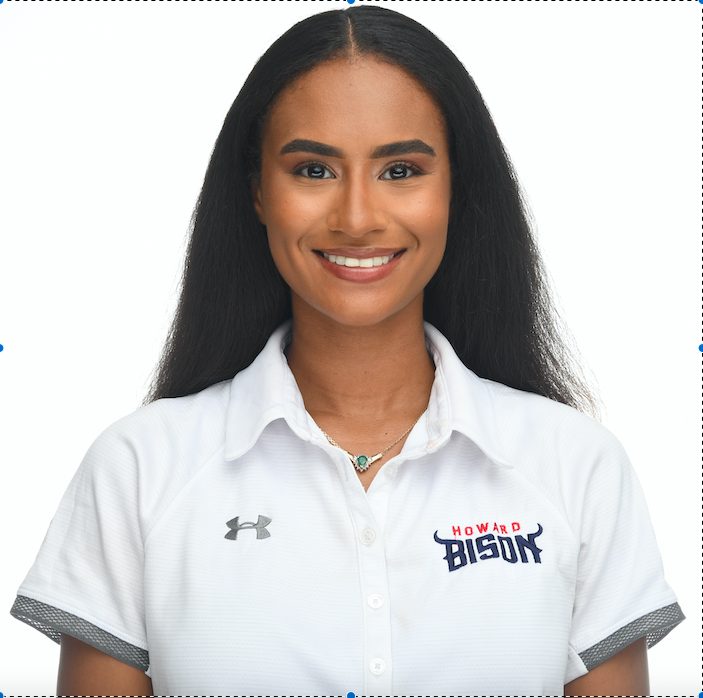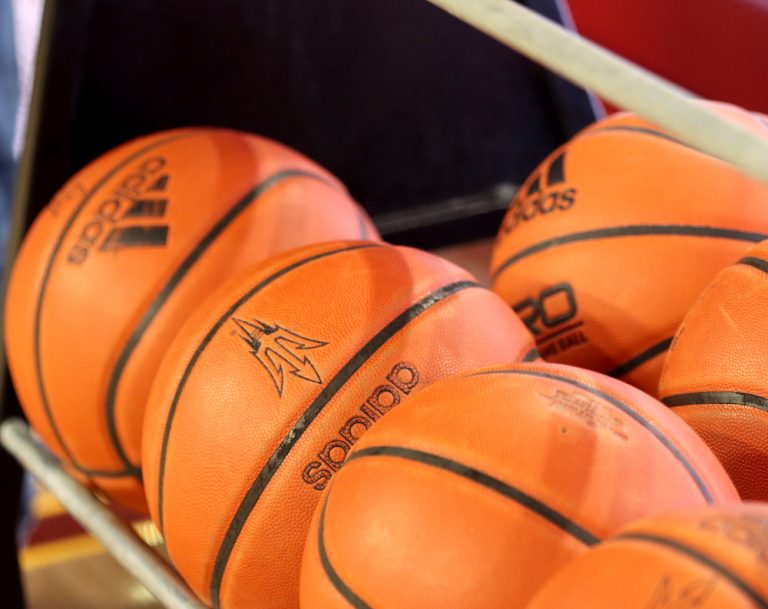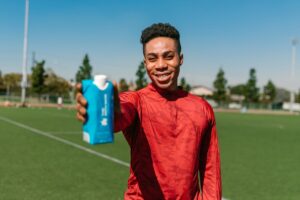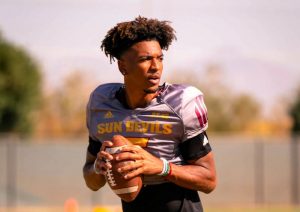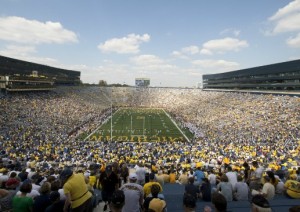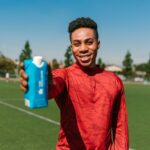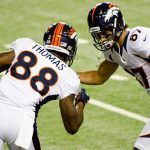Former UCLA basketball player Ed O’Bannon was drafted ninth overall in the 1995 NBA Draft and spent nearly a decade playing professional ball. Years after O’Bannon retired, one of his friends told him that his son was playing a basketball video game that he was in, but O’Bannon didn’t know about the game or receive a cut of the revenue.
In 2015, O’Bannon and 19 others won an antitrust lawsuit against the NCAA Electronic Arts and Collegiate Licensing Company for using the players’ image in games, apparel and other mediums. More than five years later, everything about college athletics would change forever.
Effective July 1, 2021, the NCAA announced a policy that allows student-athletes to make money from their name, image and likeness, commonly known as NIL. Sports law expert Michael McCann breaks down the significance of NIL as “the ability to sign an endorsement deal, the ability to sponsor a camp, the ability to make money influencing different products on social media.”
The Reynolds Center previously broke down key developments of the monumental enactment last Spring. Here is what has changed since then.
The current state of rules and regulations
Forty-three states implemented NIL laws in preparation for the NCAA’s rule change. In the seven states without them (Alabama, Alaska, Hawaii, Idaho, Indiana, Iowa and Wyoming), colleges and universities are responsible for creating their own regulations that abide by NCAA guidelines.
The Arizona Senate bill consists of five clauses including one stating, “A student-athlete may not be denied a scholarship, have a scholarship revoked, be deemed ineligible for a scholarship or be deemed ineligible for participating in intercollegiate athletics based on earning compensation for the use of that student athlete’s name, image or likeness in a manner and to the extent allowed by the rules established by the relevant national association for promoting or regulating college athletics.”
Arizona State University’s NIL activity policy seconds this and emphasizes that the student-athlete must disclose the deal’s details and its changes to the school within 10 days of the agreement’s confirmation “using a form, workflow and other process approved by [Sun Devil Athletics].”
Thousands of student-athletes jumped at the opportunity to earn money while maintaining their scholarship. Athletes such as University of Miami quarterback D’Eriq King and Jackson State University defensive end Antwan Owens signed their NIL on July 1 at midnight.
An evolving business
For decades, student-athletes have been responsible for millions of dollars brought to the athletic program. But now, prospective student-athletes can also take part in NIL deals. The On3 NIL100 list, standings that indicate the highest NIL earnings, the top three athletes are in high school: Bronny James (basketball), Mikey Willaims (basketball) and Arch Manning (basketball).
James dominates the list with over $7 million in NIL valuation, an index that is determined by the athlete’s roster and brand value. It was already unheard of for players like James’s father, LeBron James, to skip college and go straight to the professional league. Now, teenagers are able to make desirable money before graduating from high school, and the student-athlete turned businessperson conversation begins sooner.
ESPN reported that the NCAA generates approximately a billion dollars each year. This same amount is expected to be spent on deals going into its second year of operations according to NBC. It’s no surprise that men’s basketball and football compensate for more than 70 percent of the deals as shown in an Opendorse study.
School involvement
To keep up with the evolution of the business, laws limiting the interactions between schools and the student-athletes’ NIL deals were developed. In May 2022, new guidance from the Board of Directors was announced stating “coaches and staff may not arrange a meeting between a NIL entity and a prospective student-athlete nor communicate with a prospective student-athlete on behalf of the NIL entity.”
On Oct. 26, 2022, clarity was provided on the school’s involvement with NIL including the ability to provide educational resources, so students are aware of essentials such as taxes and social media practices. Also, student-athletes are allowed to meet with the business partners on campus and the school can promote their NIL activity as long as the athlete or company is paying for it.
What schools can’t do is provide assets such as tickets to donors in return for their funds towards the NIL entity, according to the legislation. It’s also prohibited for schools to hire athletic department employees connected with a NIL entity.
Additionally, schools are hiring experts to assist athletes with handling their money the right way. In June 2022, Duke University men’s basketball coach Jon Scheyer hired Rachel Baker to be his general manager.
“Through her work in the NBA and at Nike, she brings nearly a decade of expertise in the business of basketball to our staff, as well as her gifts in relationship and community building, leadership development and experiential marketing,” Scheyer said.
Purdue University is following suit by making Jack Gallagher the Director of NIL Engagement in September 2022. Gallagher will help student-athletes and their families with business elements such as “tax preparation, international sponsorship nuances and existing university brand deals.” As experts such as Baker and Gallagher see the potential of student-athletes’ future with NIL, the more other universities will see the need to hire someone to oversee the operations.
Introducing collectives
Groups of alumni and financial professionals have teamed up to help bring potential NIL opportunities to their universities. In December 2021, the University of Texas announced that their collective would kick off with a $10 million starting fund for NIL activity. After Arizona State athletics supporters did their research on state laws and their NIL mission, they announced the launching of Sun Angel Collective on Aug. 2.
With hopes to increase the athlete retention rate, Sun Angel Collective board members and committees combine their college and professional sports experience as well as their business expertise such as former Arizona Coyotes executive director Brittani Willett to determine the financial needs and opportunities of the athletic program in the short and long run. This includes finding ways to bring brands’ attention to ASU athletics.
“We often would have athletes get involved in the community,” the collective’s executive director Willett said. “We would have them come out, support a nonprofit, spend time at a Boys and Girls Club or something of that nature, and at no cost to the nonprofit, the collective through our general funds will make sure that athletes are compensated for their time.”
Willett is responsible for the various day-to-day operations including working with business communities to establish collaborations, interacting with athletics presenting potential deals and determining the terms of the agreements between brands with a plan and athletes with large social media followings. The Collective hopes to provide financial literacy support for the athletes so when they make it to the next level, they know how to manage their money.
Opportunities for international student-athletes
International student-athletes have a more difficult time obtaining deals due to conflicting laws. Those with F-1 visas are sponsored by their schools, which gives the schools the power to revoke their visa if rules are broken. The student-athletes are also limited to on-campus jobs, especially during their first year, and are only allowed to do practicum work as upperclassmen, according to Dean Golembeski.
The disparity inspired NOCAP Sports’ chief compliance officer Casey Floyd to start an online petition eight months ago attempting to persuade the NCAA to update their rules for international student-athletes.
NIL activity was highly anticipated, but is still fairly new to the sports business industry. Tackling issues in development such as inclusion will be at the forefront for how the NCAA expands themselves and the opportunities for student-athletes to enter the business realm.


